May 2017 Metrics Report
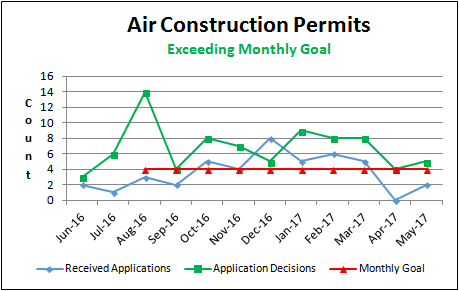
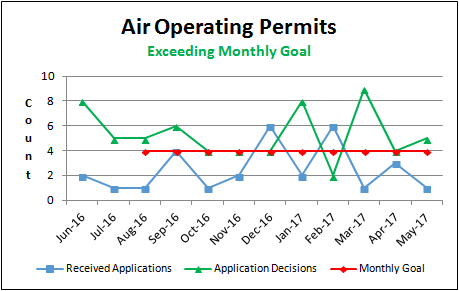
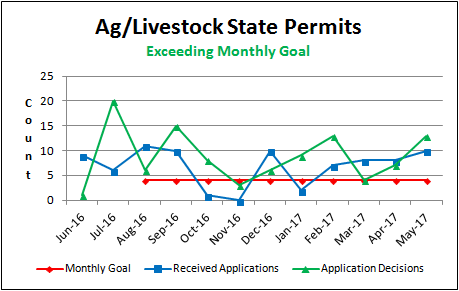
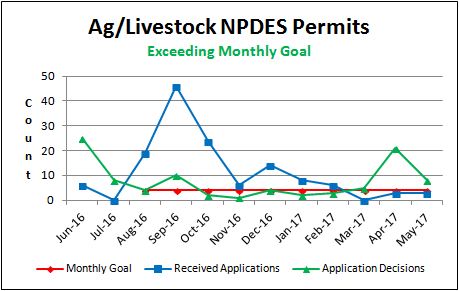

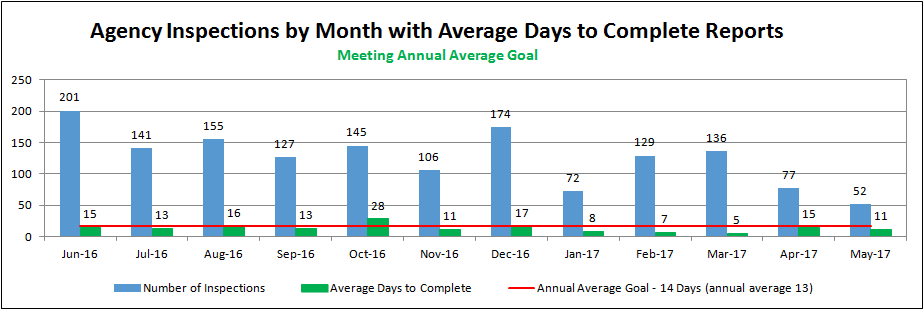
Lincoln Air Quality During Flint Hills Burning 4/7/17 to 4/14/17
- There have been impacts from burning in the Flint Hills in Kansas on southeast Nebraska
- There are many ways to assess air quality …consistency is important
- Awareness and complaints are increasing
- Collaboration with many entities on a list of items in need of further examination.
- Spreading out burn days
- Burning at different times of the year
- Effective alternative to burning
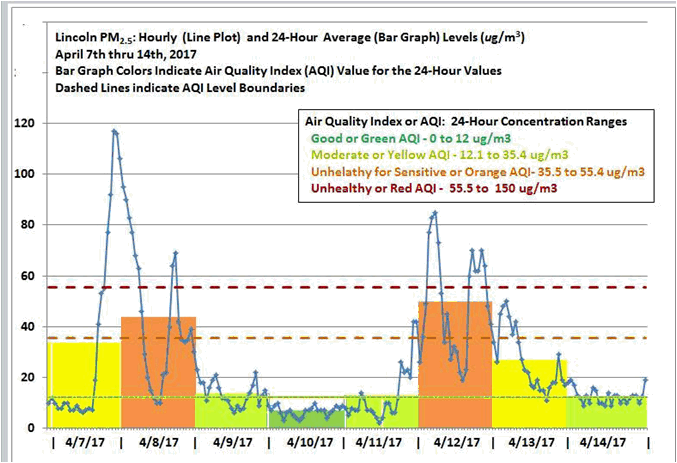
- Prescribed burning provides ecological benefits
- Control of invasive species
- Plant and animal biodiversity
but...
- There is potential for negative impacts
- Decline in air quality
- Increase in respiratory and health effects
- Historically, grasslands were burned about every 3 years
- Limited number of days to burn due to weather and grass conditions in 2017
- Burning in the Flint Hills does not appear to have increased, however, it appears burning as a management tool is increasing in adjacent areas
April 11, 2017: Fire and smoke map from EPA AirNow web site
- Red triangles indicates the location of a fire
- Gray areas indicate smoke
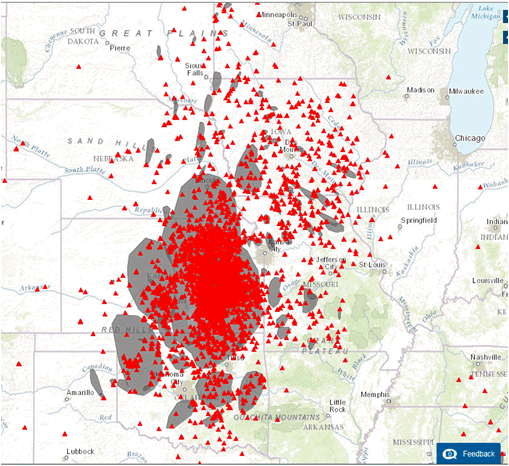
Emerging Risks / Issues: NDEQ began seasonal water-quality sampling at lakes, streams and beaches across the state on May 1st. Sampling will be conducted at 53 beaches on 50 lakes for E.coli bacteria and the toxin microcystin (from blue-green algae) until the end of September. Anyone interested in the sampling results can sign up on the NDEQ website for weekly notices. Additionally, the information is available on the NDEQ website on an on-going basis. In addition to beach sampling, more extensive water quality sampling is being conducted in the White-Hat, North Platte, and South Platte river basins. In total, NDEQ will analyze approximately 40,000 samples this year.
Accomplishments: NDEQ conducted “Environmental Update” sessions in North Platte, Norfolk and at the UNL Eastern Nebraska Research Extension Center near Mead (for the Lincoln and Omaha areas) the week of May 22nd. The Updates are the annual educational sessions NDEQ holds for the regulated community and associated environmental consultants. This year, all presentations were given by the Administrators responsible for the Air, Land, and Water programs. There were approximately 110 attendees. Program updates focused on new regulations and emerging issues. Each session opened with Director Macy providing an overarching description of NDEQ activities and priorities as well as a discussion of national items of interest. A primary objective of the Updates is to allow interaction between NDEQ and the regulated community. NDEQ is pursuing recommendations received from the attendees as to steps we can take to be more effective.
NDEQ’s Air program received the first electronic payment for the processing of an Air Quality construction permit application. This process will be significantly more convenient for both the applicant and NDEQ, and will also shorten the time to issue permits. Once fully implemented, this process will be applicable to most NDEQ programs that require payments.
Misc. Items of Note: On May 31st NDEQ Administrators and Directors met with management staff from EPA Region VII to discuss issues, projected activities and plans for the coming year. This meeting was held to ensure a consistent approach to issues and to identify issues and priorities in need of attention.
NDEQ Air Quality staff presented in-house ethanol facility training to 20 staff. Training was provided to a combination of permitting and compliance inspection staff. The training provided an overview of technical operational issues, control equipment operations and reporting and record-keeping requirements.